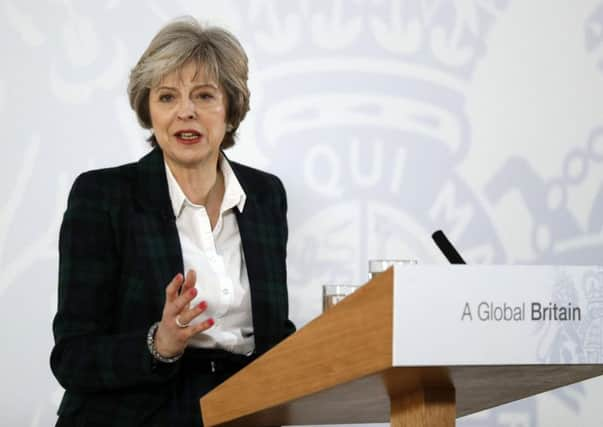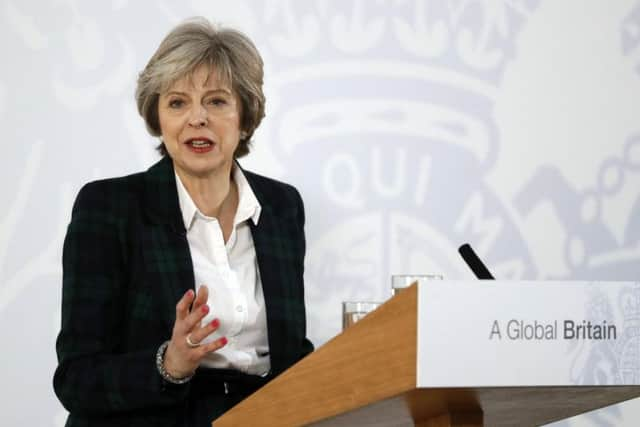Brexit Bill passes first Commons hurdle: How MPs voted


The Government’s Brexit Bill passed its second reading with a majority of 384 votes tonight, bringing Theresa May one step closer to achieving her deadline of March 31 for notifying the EU of her intention to leave.
The development came amid a wave of Labour front bench resignations, as MPs defied a three-line whip to voice their opposition to the prospect of a Hard Brexit. Casualties of the vote included the York MP Rachael Maskell, who stepped down as Shadow Defra Secretary over the “unjustifiable level of risk” around Government plans.
Advertisement
Hide AdAdvertisement
Hide AdToday’s positive result for Mrs May followed two days of heated debate in the Commons, as MPs made the most of their first opportunity to scrutinise Brexit legislation in the wake of the Supreme Court ruling.


The series of impassioned exchanges saw a number of heavyweights return to the fore, with interventions from former Chancellor George Osborne and former Labour leader Ed Miliband.
Mr Osborne issued a warning to MPs seeking to block Brexit, as he claimed it would risk “putting Parliament against people” and provoking a “deep constitutional crisis” in Britain. However, he also had a word of caution for the Prime Minister, as he suggested negotiations with the EU would be “bitter” and there would be arguments no everything from state aid to agricultural produce.
Mr Miliband meanwhile used his contribution to speak of the “sense of disaffection and deep frustration” that lies behind the referendum result. He pledged to respect the outcome of the vote, but stressed that Britain must not allow a break from the EU to drive it “into the arms of President Trump”.
Advertisement
Hide AdAdvertisement
Hide AdA host of his fellow Labour MPs used the debate as a chance to register their protest against both a Hard Brexit and Jeremy Corbyn’s decision to whip the vote in favour of triggering Article 50.


Among the rebels were the former leadership contender Owen Smith, the Public Accounts Committee chairman Meg Hillier, and the Environmental Audit Committee chairman and Wakefield MP Mary Creagh.
Explaining her decision, Mrs Creagh, whose constituency voted to leave, said she felt it was her “duty” as an elected representative to protect her constituents’ interests.
“My judgement is that this vote will make people in Wakefield poorer, will destroy jobs and businesses... and reduce the tax base that funds our NHS, schools and services,” she said. “I can no more vote for this, than I can vote against my DNA.”
Advertisement
Hide AdAdvertisement
Hide AdIn another blow to Mr Corbyn’s leadership, the York MP Rachael Maskell became one of four Labour frontbenchers to resign over the vote after consulting with local residents about her position on Article 50.
Announcing her decision, she said the Government’s plan to leave the Single Market with “no guarantee” on environmental protections and workers’ rights creates “an unjustifiable level of risk”.
Following the passage of the Bill at second reading, it will now progress to committee stage next week, before the final deciding vote in the Commons on Wednesday. However, MPs will have a chance to scrutinise the Government’s plans for negotiations in greater detail between now and then, after Theresa May revealed they would be published in a White Paper tomorrow.